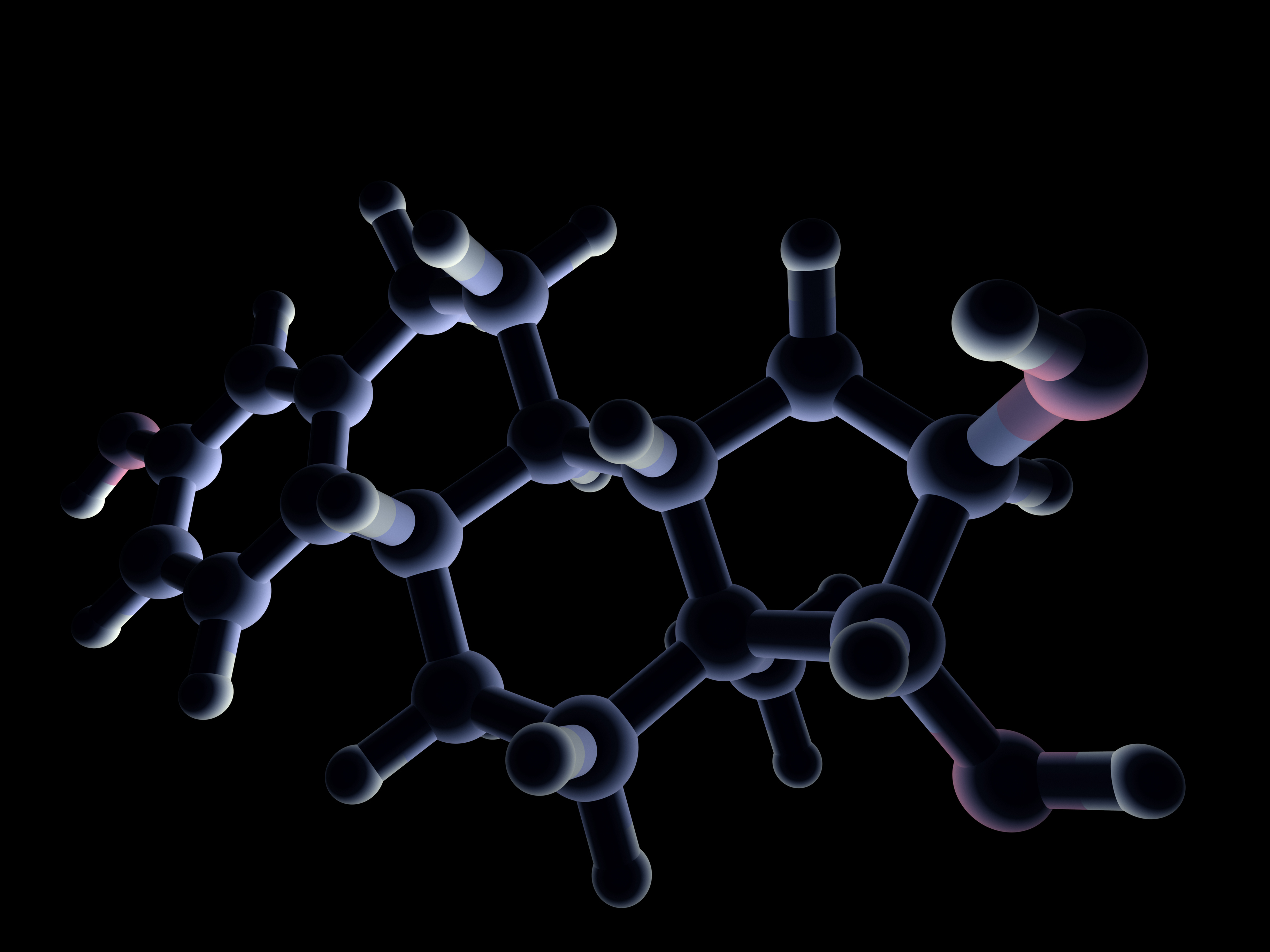When trying to conceive, it can be helpful to have a good understanding of the reproductive hormones of both men and women, as well as having a good grasp of basic fertility facts. In this blog post, we take a close look at the role and function of the female sex hormones, looking specifically at oestrogen, progesterone and luteinising hormone (LH).
What does oestrogen do in women?
From puberty to menopause, the hormone oestrogen is produced by the ovaries (the two egg-producing organs in the female reproductive system). After menopause, lower levels of oestrogen are secreted in women and the body makes it by converting androgens (male sex hormones) into oestrogen.
Oestrogen is a hormone that plays many different roles in the female body. It is one of the main hormones that are responsible for the development of secondary sexual characteristics, such as breasts, and the development and maintenance of the female reproductive system. Male bodies produce oestrogen too, but at lower levels than females. In the female body, oestrogen is necessary for:
- Puberty
Oestrogen controls the sexual and reproductive maturation of girls during puberty (typically between the ages of eight and 13). The hormone triggers breast growth, changes the way fat is distributed in the body, makes girls grow taller and contributes to the normal development of the vagina, uterus and fallopian tubes.
- The menstrual cycle
Oestrogen is one of the main hormones that regulates the menstrual cycle. During the first phase of the cycle, it thickens the lining of the uterus to prepare for pregnancy. It also inhibits the production of follicle-stimulating hormone (also known as FSH) so that only one egg matures during a cycle.
- Sex drive and arousal
Oestrogen levels contribute to a healthy sex drive and promote sexual arousal. If you have low oestrogen levels, your libido may be low and you may suffer with vaginal dryness.
- Bone strength
Oestrogen is associated with bone strength as this hormone regulates bone metabolism. Low oestrogen levels can result in low bone density and osteoporosis.
What does oestrogen do during pregnancy?
Oestrogen levels increase steadily in pregnancy and tend to peak in the third trimester.
In early pregnancy, oestrogen supports the growth of the embryo until the placenta takes over, which usually happens between eight and 12 weeks. Oestrogen promotes the development of the embryo’s organs and the healthy function of the placenta.
Increased oestrogen levels can cause nausea, particularly in the first trimester when hormone levels increase rapidly. Higher oestrogen levels are also associated with the softening of the ligaments, which can cause pelvic and lower back pressure.
In later pregnancy, oestrogen prepares the body for breastfeeding by triggering the milk ducts to multiply and increase in size. During and leading up to labour, oestrogen works with oxytocin to release hormones known as prostaglandins, which are thought to ripen the cervix in preparation for birth.
What does progesterone do in women?
Progesterone is a hormone that is released by a mass of cells that forms in the ovary, known as the corpus luteum, during the second half of the menstrual cycle. Progesterone helps to prepare the body for pregnancy by thickening the womb lining. If an egg is not fertilised that month, the corpus luteum slowly disintegrates and progesterone production slows down. This drop, along with a drop in oestrogen levels, triggers menstruation. It’s been suggested that premenstrual syndrome (PMS) may be caused by falling progesterone levels.
What does progesterone do during pregnancy?
If an egg is fertilised, the corpus luteum doesn’t disintegrate and continues to produce progesterone. Known as the ‘pregnancy hormone’, progesterone plays a vital role in the development of a healthy pregnancy. Here are some of the vital functions that progesterone performs during early pregnancy:
- it increases the flow of blood to the uterus
- it stimulates the uterine lining to produce nutrients to support the embryo
- it helps the placenta to develop
At around six to nine weeks, the placenta becomes the main producer of progesterone. As the pregnancy progresses, progesterone plays a number of important roles, including:
- helping to prevent miscarriage by preventing early uterine contractions
- supporting healthy foetal development
- inhibiting lactation until after pregnancy.
Progesterone supplements are sometimes prescribed to women who have suffered ‘recurrent miscarriage’ (losing a pregnancy before 23 weeks three or more consecutive times). Progesterone is also prescribed as part of in-vitro fertilisation (IVF) to prepare the lining of the womb for pregnancy and to support early pregnancy.
What does LH do in women?
Luteinising hormone (LH) is secreted by the pituitary gland (the small pea-sized endocrine gland located at the base of your brain, behind your nose and between your ears).
LH is responsible for a variety of processes in the female reproductive system. For example, it:
- helps an egg to mature in the first half of the menstrual cycle
- triggers ovulation (the release of the egg from the ovary)
- stimulates the corpus luteum to secrete progesterone, which is vital for supporting early pregnancy.
Ovulation test kits, which are often used to determine a woman’s most fertile days, work by detecting levels of LH in the urine. An LH surge usually occurs 24 to 26 hours before an egg is released.
As you can see, hormones play a vital role in pregnancy and fertility. There are lots of small steps you can take to promote normal hormonal activity. For example, you should try to get enough sleep, keep stress levels to a minimum, eat healthy fats, lower your sugar intake, take regular exercise and maintain a healthy weight. You may also want to consider taking specific fertility vitamins that are scientifically proven and that are designed to support female hormone function.
If you have any concerns about your hormones or your fertility, you should contact your healthcare provider.

